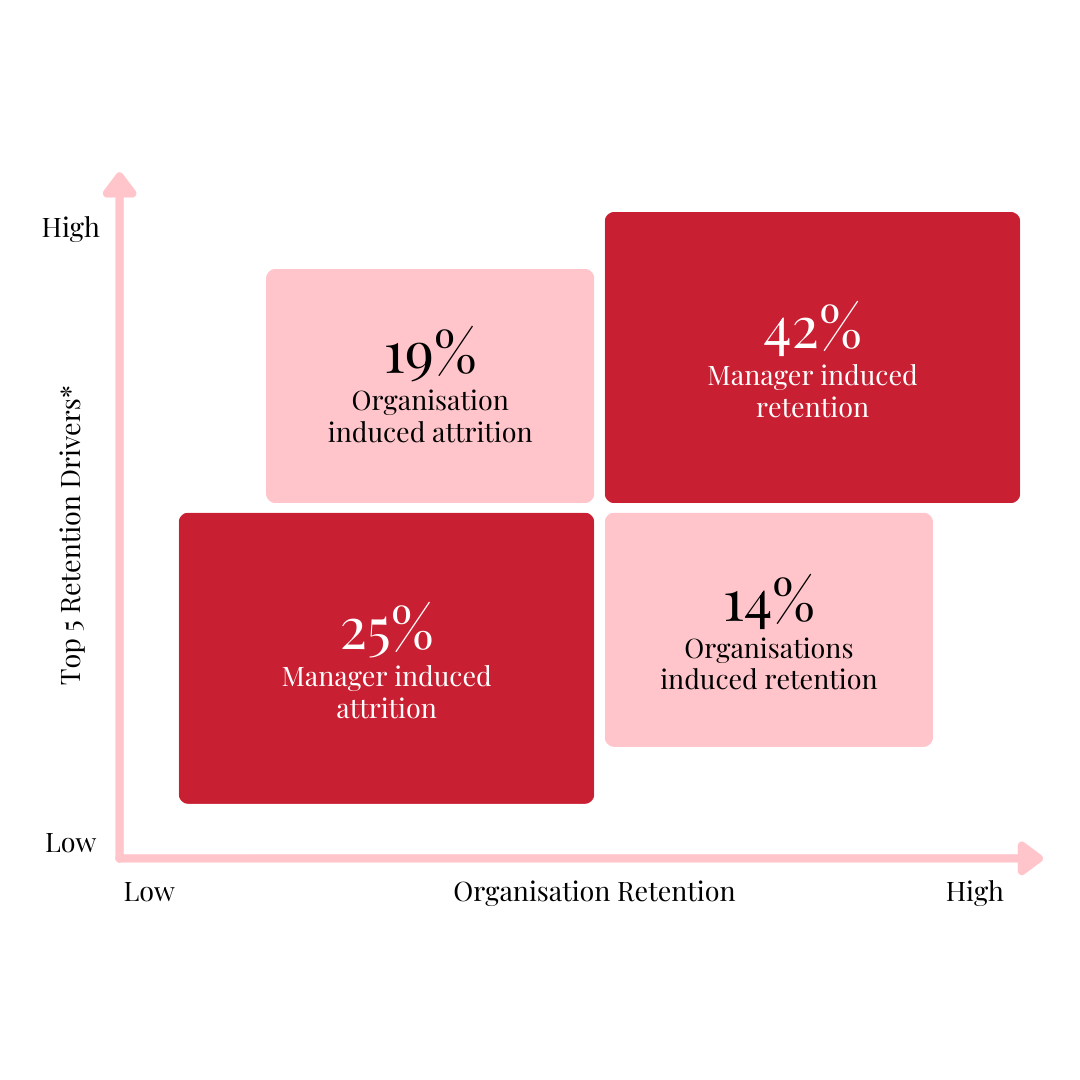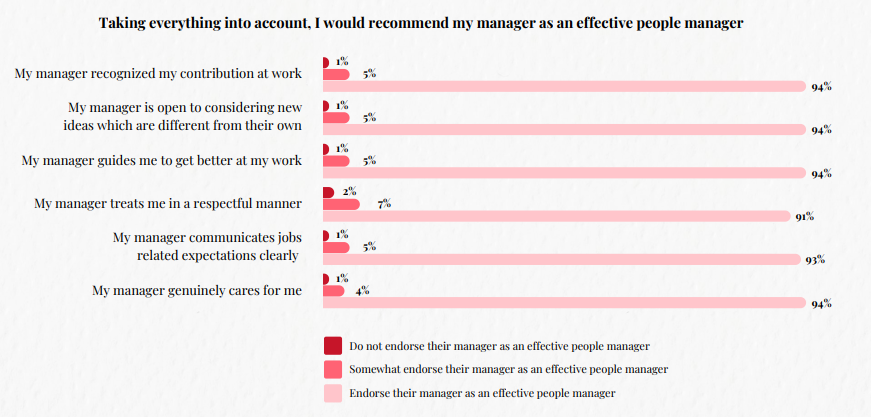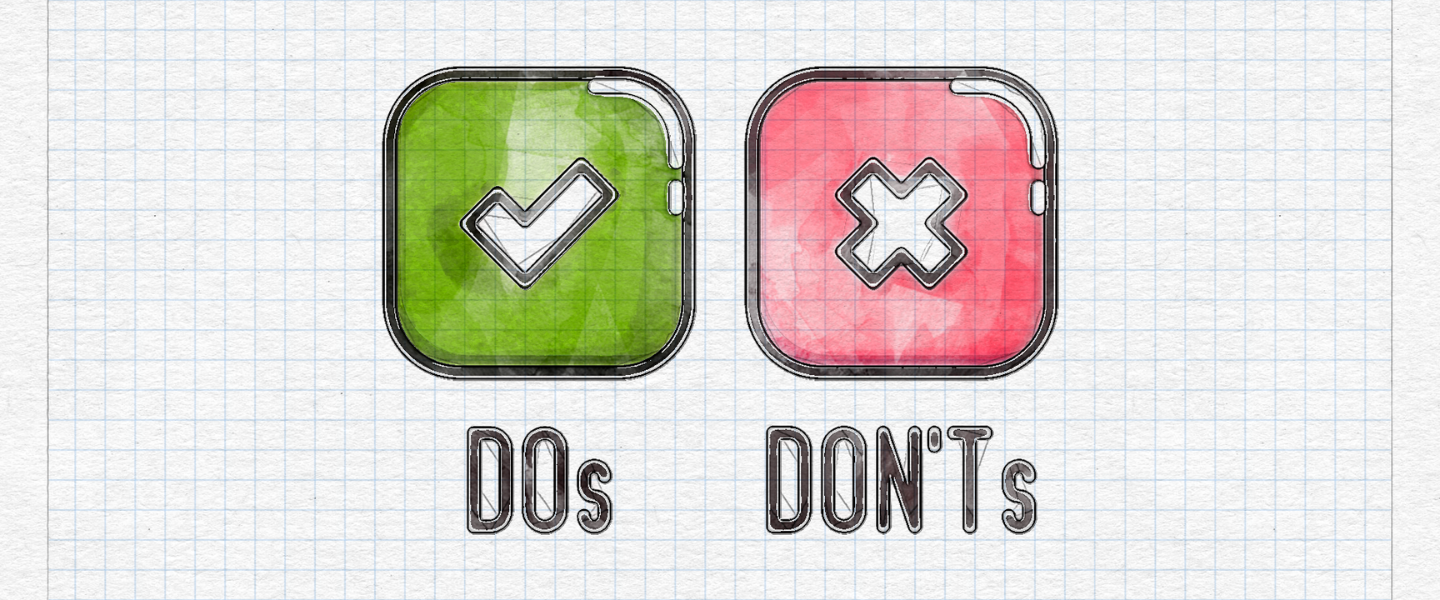No rule, rules! Is it a modern-day work expectation?
Imagine a workplace where there are no rules and no set boundaries; you can come to work at any time, can take as many leaves as you want, no
permission to be taken for any travel and you don’t have to follow any mundane policies. The only condition is to perform and deliver what is required!
In line with this, Netflix’s HR approach came into the spotlight which primarily focuses on the aspects such as ‘freedom’ and ‘responsibility’ while letting go of the many mundane rules. At Netflix, Reed Hastings (co-founder, Netflix) set new standards which value people over processes, emphasize innovation over efficiency, and giving employees context, not controls. No rule, rules is the intriguing yet interesting philosophy behind one of the world’s most innovative, imaginative, and successful organizations today. Google, is another example of a highly successful organization that stresses on employee freedom to make them happier and make them stay for long.
How would you perceive such workplace to be? Would you aspire to build such workplace with ‘no rules’ or you would want at least some rules to guide your employees to tread on the right direction? What are some of the modern-day expectations of the employees from their workplace? Let’s reflect on this by considering some variables which may influence these questions. However, before that let’s understand the psychology behind No Rule Rules!
Psychology behind No Rule Rules
Human beings have certain universal psychological needs: to have autonomy and to exercise self-control are important ones to attain personal growth. Self-determination theory refers to person’s ability to make choices and manage their own life. Being self-determined means that you have greater control over things, and your life is not governed by others. However, each of these needs is frequently thwarted by traditional command-and-control managerial styles and rule-heavy, deeply monitored workplaces. Employees don’t feel enthused and motivated to try out new things and work with strict rules. They feel scared to commit mistakes and feel throttled by constant monitoring and guidelines. Therefore, it is important to create a liberating environment that nurtures these psychological needs, rather than stifling them. Such liberated workplaces boast of high level of engagement and intrinsic motivation among employees.
These psychological needs and employees’ work expectations are often shaped by various external as well as internal factors. Let’s take a quick look at these factors:
Factors Shaping Employees’ Expectations
- Demographic diversity: Shifting demographics, including an aging workforce and the rise of younger generations entering the workforce, contribute to changes in workplace expectations, needs, and work-life balance. It is estimated that by 2030, India will be home to 1 billion working-age adults which will mostly comprise of Millennials and Gen Z. As of 2021, India’s share of Millennials and Gen Z stood at 52%, much higher than the global average of 47%. Gen Z is one of the main drivers of change in today’s workplace. Defined as the generation of individuals born between 1997 and 2012 (who in 2023 are between the ages of 10 and 25 years), are growing up with smartphones and social media, are more vocal about their needs and knows ways to fulfil those needs. Radically different than Millennials, this generation has an entirely unique perspective on careers and life. They are setting new trends and emerging as influencers. Managing their expectations would be a challenging task going forward.
Furthermore, Labor Force Participation Rate (LFPR) for females is also expected to grow. Nearly 49% of the total enrolment in higher education comprised of female students. With this rising trend, India should expect a much larger proportion of women’s participation in the workforce in the years to come. Apart from that, we also see a rise in the population of LGBTQ in the workplace and successfully managing this demographic diversity would be a priority for employers in the years to come.
- Technological Advancements: Rapid advancements in technology, such as artificial intelligence, automation, and digital platforms, continue to reshape the nature of work and expectations. These technologies will impact job roles, skills requirements, and the overall work environment.
- 3. Economic and regulatory environment: Economic trends, such as recessions or periods of growth, can impact job availability, compensation levels, and the overall stability of the job market. Similarly, changes in labor laws, workplace regulations, and government policies impact how employers structure work and related policies. Furthermore, any major event might bring a major shift in work expectations, like, the pandemic totally changed people’s perspectives towards work, life and mental health.
- Organizational Culture and leadership styles: The culture within an organization, including its values, norms, and leadership style, determine employee expectations. An open culture would let employees to be more vocal, transparent and innovative while closed culture will restrict employees’ expressions.
- Organizational Structure and policies: The structure of an organization, whether hierarchical or lean, influences expectations regarding reporting relationships, autonomy, growth and career paths. Company policies on issues such as work hours, remote work, and benefits contribute to shaping expectations about work arrangements.
Having looked at these factors, let’s take a quick look at what are some of the modern day expectations of the employees.
Modern-day Expectations from the Workplace
- Increased emphasis on Flexibility and Work-life balance: The pandemic era has been an eye opener for many and it is observed that people have become more aware of what they want from their work and life. They want to prioritize their health and time with family and value flexibility in terms of work hours and locations. Remote/hybrid work options and flexible schedules are commonplace now and employees want to work with organizations which offer these options to its employees. Also, with more women (working mothers) joining work, better crèche facility would be desirable. We have already seen phenomenal changes with respect to maternity and in some cases paternity leaves.
Similarly, with employees spending extended time in the office, they expect additional recreational facilities like cafeteria, some indoor sports room, fitness facilities organized by the organization. Such expectations will continue to rule the workplace in the years to come. - Respecting Inclusivity and Diversity: Employees would want to work with organizations which respect and promote Diversity and Inclusivity and value employees from different demographics, experiences, and perspectives. As discussed before, it is important to acknowledge the needs and outlook of different generation at the workplace. To facilitate this practice, it is important to connect with employees and roll out surveys to collect their opinions and suggestions and bring desired changes based on such surveys.
- Seeking Purpose and Meaning: Employees today desire work that aligns with personal values and contributes to a larger purpose. Employees often seek meaning in their work which at times go beyond financial compensation. They seek opportunities for skill enhancement, training, and career growth within the organization. When such demands are not met, employees do not hesitate to quit their work.
- Health and well-being: There has been a growing focus on employee well-being, including mental health support, wellness programs, and initiatives that promote a healthy work environment. Employees today give utmost importance to their health and don’t want to be bound by any rule which puts a threat to their health and well-being.
What are the expectations from a manager?
Managerial effectiveness is one of the most important factors determining employee engagement and retention in the organization. Employees invariably look up to their managers and carry certain expectations from them.
As per our research, 67% of manager attrition and retention is induced by managers!

Here are 6 expectations team members have from their managers in the modern-day workplace
- They want their managers to do away with their authoritarian approach and rather become more collaborative and participative, sharing their ideas and also seeking insights from others.
- Employees expect managers to not micromanage everything and rather provide them the sense of autonomy and ‘creative liberty’ to come up with innovative ideas and solutions.
- As people are becoming more aware of their mental health and well-being, they want to work with managers who are empathetic and emotionally intelligent and treat employees with respect. Working with a short-tempered boss can be a challenging and stressful experience which employees want to avoid at all costs. No wonders, bad managers are number 1 reason why employees quit their organization!
- Employees expect managers to communicate clearly and transparently. This includes providing information about organizational goals and vision, expectations for individual performance, and how to go about it.
- Employees expect and appreciate constructive feedback that helps them understand their strengths and areas for improvement. Recognition for achievements and contributions is valued.
- Employees expect to understand their career paths within the organization. Managers are expected to provide guidance on potential career trajectories and offer fair and equal opportunities for advancement and skill development.
As the workplace is evolving and shifting from being traditional to modern; managers need to step up and become more effective. Our research on managerial effectiveness, which comprised responses from over 30000 employees reveals that managers who demonstrate behaviors such as recognizing their team’s contribution, being open to new ideas, guiding them, and treating them with respect are considered effective people managers. They are great at communicating job expectations and care for their employees.

Rules or ‘no rules’ debate will keep on happening but it is important to note that while some people thrive in less structured environments, others may prefer clear guidelines and structure. Overly-rigid workplaces with authoritative managers may result in employees’ getting disenchanted with their organization and eventually look for work elsewhere while more freedom may compromise performance standards. The need is to create a balance. The ideal balance however, depends on the nature of the work, the industry, and the leaders involved. For example, organizations high on creativity and innovation would be relatively less bound by rules whereas organizations in finance and security would certainly need rules and heavy monitoring. Employers may take a middle path and adapt their policies and practices to meet the evolving needs and expectations of their workforce.











